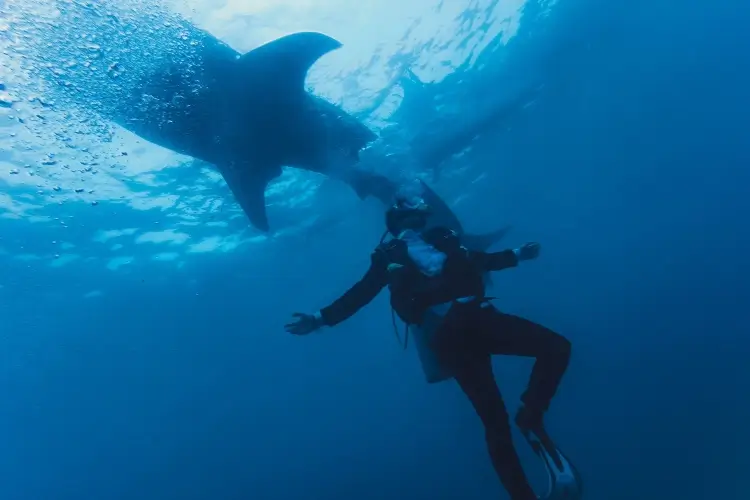Scuba diving is an exhilarating activity that allows you to immerse yourself in the beauty of the ocean, but it also comes with risks.
In this article, we will cover the legalities and potential dangers of diving without proper certification. We will also provide tips for obtaining your scuba license.
Importance of Scuba Diving Certification

Scuba diving certification is essential for several reasons. Firstly, it ensures your safety and the safety of others. Scuba diving involves various techniques and equipment that must be learned and mastered through proper training. Certification courses teach you how to use the equipment correctly, handle emergency situations, and navigate underwater environments.
Secondly, certification is required by most dive operators and resorts. They want to ensure that their customers have the necessary skills and knowledge to dive safely. Without certification, you may be denied access to dive sites or guided dives.
Furthermore, certification allows you to rent equipment from dive shops and participate in dive trips around the world. It opens up a world of opportunities for exploration and adventure.
Legal Consequences of Diving Unlicensed
Diving without proper certification can have legal consequences depending on the jurisdiction you are in. Many countries have regulations in place to protect divers and the environment. Diving without certification may result in fines, legal issues, and even imprisonment in severe cases.
In addition, insurance companies often require proof of certification in case of accidents or injuries during diving activities. Without certification, you may not be covered by insurance, leaving you responsible for any medical expenses or damages.
Is It Possible to Scuba Dive Without Certification?
While it is technically possible to scuba dive without certification, it is strongly discouraged and considered unsafe. Scuba diving involves specific skills and knowledge that cannot be acquired through a single diving experience. Certification courses provide comprehensive training to ensure divers are prepared for various scenarios they may encounter underwater.
Attempting to dive without certification puts you at risk of accidents, injuries, and potentially endangering yourself and others. It is important to undergo proper training and earn your certification before engaging in diving.
The Potential Dangers of Diving Without Proper Training
Diving without proper training and certification exposes you to a range of potential dangers. Here are some of the risks associated with diving without certification:
- Lack of knowledge: Without certification, you may lack essential knowledge about dive planning, decompression procedures, and emergency protocols.
- Equipment misuse: Scuba equipment requires proper handling and maintenance. Without proper training, you may misuse the equipment, leading to malfunctions or accidents.
- Medical issues: Diving can put stress on the body, especially during ascent and descent. Certified divers learn how to manage these pressure changes and avoid medical problems such as decompression sickness.
- Emergency situations: Diving accidents can happen, and certified divers are trained to handle emergency situations such as equipment failures, buddy separation, and underwater distress.
It is essential to recognize the potential dangers and prioritize safety by obtaining the necessary certification.
Tips for Obtaining Your Scuba Diving Certification
If you are interested in becoming a certified scuba diver, here are some tips to help you get started:
- Research dive centers: Look for reputable dive centers or schools that offer training courses. Read reviews, check their credentials, and ensure they follow recognized training standards.
- Choose the right course: There are different levels of certifications, such as Open Water Diver, Advanced Open Water Diver, and Rescue Diver. Choose a course that aligns with your diving goals and interests.
- Complete the theory and pool sessions: Most certification courses include theory lessons and pool sessions to help you grasp the fundamentals before heading into open water.
- Practice regularly: After obtaining your certification, continue to dive regularly to maintain and improve your skills. Join dive clubs or participate in group dives to gain experience and confidence.
FAQs
Can I scuba dive without certification in any country?
While the regulations vary by country, it is generally not recommended to scuba dive without certification. Most popular dive destinations require divers to present their certification before participating in dive activities.
Can I dive without certification if I have prior diving experience?
Prior diving experience does not replace the need for certification. Diving is a skill-based activity, and proper training is key to ensure your safety and the safety of others.
Can I practice scuba diving in a swimming pool without certification?
Some dive centers or schools may offer pool sessions for beginners who are not yet certified. However, it is important to note that pool sessions alone do not provide the necessary certification to dive in open water.
Can I get certified as a scuba diver if I have a fear of water?
Overcoming a fear of water can be challenging, but it is possible with the right guidance and support. Speak with a certified scuba instructor who can provide specialized training and help you build confidence in the water.
Conclusion
It is strongly recommended to obtain scuba certification before engaging in any diving activities. Certification courses provide the necessary knowledge and skills to ensure your safety and the safety of others.
Diving without certification poses significant risks and may have legal consequences in many jurisdictions.
